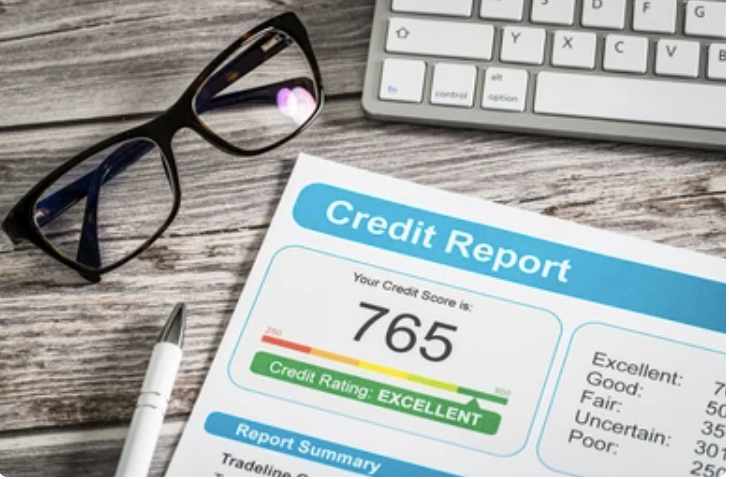
Your credit score is a crucial factor in your financial well-being. It affects your ability to get loans, advantageous interest rates, and even rent a place to live in. Credit cards can play a significant role in improving your credit score when used responsibly. In this article, we will explore some valuable tips for using credit cards to enhance your creditworthiness and raise your credit score.
- Pay Your Bills on Time: Timely payment is one of the most critical factors that influence your credit score. Make it a priority to pay your credit card bills on or before the due date each month. Late payments can have a severe negative impact on your credit score, so set up reminders or automatic payments to ensure you don’t miss any deadlines.
- Keep Credit Utilization Low: Credit utilization is the percentage of your available credit that you are currently using. Aim to keep your credit utilization ratio below 30% to demonstrate responsible credit usage. For example, if you have a credit limit of $5,000, try to keep your outstanding balances below $1,500. By keeping your credit utilization low, you can show lenders that you are able to manage credit responsibly.
- Use Credit Cards Regularly: Inactivity on your credit cards can also impact your credit score. Use your credit cards regularly, even for small purchases, and make sure to pay off the balance in full each month. Regular activity helps demonstrate your ability to manage credit effectively and build a positive credit history.
- Avoid Opening Too Many Credit Cards: While having multiple credit cards can increase your available credit and potentially lower your credit utilization ratio, it’s important to be cautious about opening too many accounts. Opening multiple credit cards within a short period can negatively impact your credit score. Only apply for new credit cards when necessary and avoid excessive credit inquiries.
- Maintain a Mix of Credit: Credit scoring models also consider the types of credit accounts you have. Having a healthy mix of credit, such as credit cards, student loans, or car loans, can positively impact your credit score. However, don’t take on unnecessary debt just to diversify your credit mix. Only borrow what you need and manage your credit responsibly.
- Monitor Your Credit Report: Regularly reviewing your credit report allows you to identify any errors, fraudulent activity, or inaccuracies that may be negatively impacting your credit score. Request a free copy of your credit report annually from the major credit bureaus (Equifax, Experian, and TransUnion) and promptly address any discrepancies you find.
- Be Cautious with Balance Transfers and Debt Consolidation: Balance transfers and debt consolidation can be helpful strategies to manage debt, but they should be approached with caution. While they can provide temporary relief, it’s important to carefully review the terms and fees associated with these options. In some cases, balance transfers may result in a temporary dip in your credit score, so weigh the pros and cons before making a decision.
- Limit New Credit Applications: Every time you apply for a new credit card, a hard inquiry is noted on your credit report. Multiple hard inquiries within a short period can lower your credit score. Therefore, avoid unnecessary credit applications and only apply for credit when you genuinely need it.
Improving your credit score with credit cards requires responsible credit management and adherence to good financial habits. By paying your bills on time, keeping your credit utilization low, using credit cards regularly, and maintaining a healthy mix of credit, you can gradually enhance your creditworthiness. Monitor your credit report, avoid excessive credit applications, and approach balance transfers and debt consolidation wisely. With consistent effort and responsible credit card usage, you can raise your credit score and unlock better financial opportunities. Remember, building good credit takes time, so be patient and persistent in your credit-building journey.
Additionally, it’s important to note that improving your credit score is not an overnight process. It requires consistent, responsible behavior over time. Building a strong credit history demonstrates your financial responsibility and makes you a more attractive borrower in the eyes of lenders.
While credit cards can be valuable tools for improving your credit score, it’s crucial to use them wisely. Avoid carrying high balances, make timely payments, and keep your overall debt levels manageable. By doing so, you’ll establish a positive credit history and demonstrate your ability to handle credit responsibly.
Lastly, be aware that improving your credit score is not just about credit cards. Your credit score is influenced by various factors, including payment history, credit mix, length of credit history, and new credit. Therefore, it’s essential to maintain a holistic approach to credit management, which may include paying other bills on time, diversifying your credit portfolio, and avoiding excessive new credit applications.
In conclusion, credit cards can be powerful tools for improving your credit score when used responsibly. By following the tips mentioned in this article, such as paying bills on time, keeping credit utilization low, and maintaining a healthy mix of credit, you can gradually raise your credit score and unlock better financial opportunities. Remember, good credit is a valuable asset that can open doors to favorable interest rates, loan approvals, and financial stability. Start implementing these tips today and watch your credit score soar in the future.